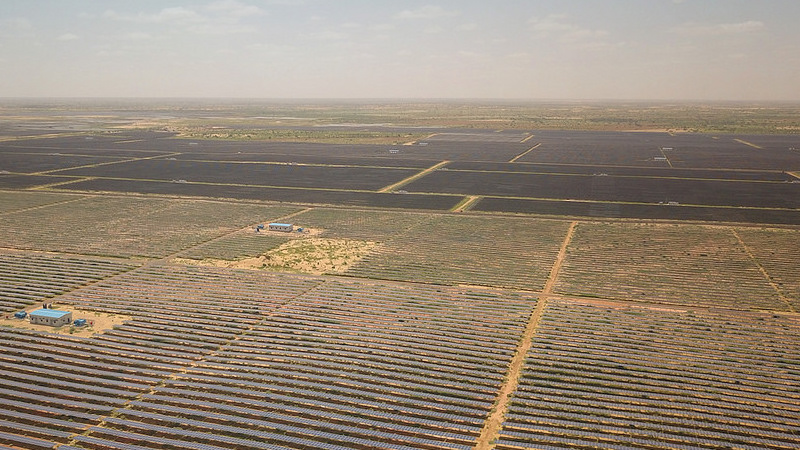With an economic growth rate averaging 7% over the last decade, India’s appetite for energy is growing apace.
Meanwhile, around 200 million Indians still live without electricity, making the demand on energy not only an economic necessity, but a social exigency.
The Climate Investment Funds (CIF), through its Clean Technology Fund and in cooperation with the Asian Development Bank, is investing $200 million to finance large-scale solar infrastructure projects in India. One such project, Rajasthan’s Bhadla Solar Park, stands out both for scale and impact.
The expansive facility stretches across an area of more than 10,000 acres, and with a total installed capacity expected to surpass 2,000 megawatts, it is on track to become India’s largest solar park.
With low-cost loans and a decline in the cost of solar panels, solar infrastructure projects like Bhadla Solar Park are helping India reduce its dependence on imported fossil fuels. In rural areas, the technology is also proving to be a much healthier power source than kerosene for indoor lighting.
Bhadla Solar Park is driving economic growth and job creation in surrounding areas. The local service industry has benefited from the influx of workers and ambitious young Indians are finding employment in the renewables sector. Bhadla is “where the opportunity is,” said 28-year-old Raj Kumar Gupta, an engineer with Rising Sun Energy, a firm helping to develop the site.
Through this and similar projects, the government of India has committed to producing 100 gigawatts of solar power, enough energy to electrify 75 million households, by 2022. “This is easily achievable!” said Vivani Ratul, Bhadla Solar Park’s site manager.
With low-cost financing such as that provided by CIF and with the price of solar panels steadily dropping, his optimism is justified. “Renewable energy is my future and the future of India!” said Ratul.
This post is sponsored by the Climate Investment Funds. See our editorial guidelines for what this means.
